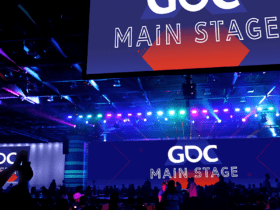Nobody’s a fan of game delays, but (secretly) they’re a good thing. Game delays are a hot topic in the video game community right now. It seems like, in the past few months, we’ve heard an unusually high number of game delay announcements.
Metroid Prime 4
For myself, this trend of game delays was put on my radar early last year when Nintendo issued an update about the development of Metroid Prime 4. Prime 4 was first announced back in E3 2017. A 40-second video showed only a logo for the game, a snippet of atmospheric music that the series is well-known for, and an announcement that the game was “now in development for Nintendo Switch.” As a fan of the Metroid Prime series, even this short announcement was enough to get me excited about the game’s potential.
But I found myself left with mixed feelings after the 2019 update, in which Shinya Takahashi, General Manager of Nintendo Entertainment Planning and Development, announced that Metroid Prime 4 was delayed. And the delay wasn’t going to be just a few months. The game was apparently in such a poor state that Nintendo would have to start development over from scratch. All that Takahashi could promise was that “development time would be extensive” and that they would “continue developing the game.”
While I was disappointed by the news, I was equally glad to hear that Retro Studios, the studio behind the original three games of the Metroid Prime trilogy, had been tasked with developing the game. The delay would surely mean that the game would improve. I found myself recalling Shigeru Miyamoto’s famous quote: “A delayed game is eventually good, but a rushed game is forever bad.” (Of course, he said this at a time when internet updates and patches weren’t yet a thing. But even though they are a thing now, the general thrust of his statement is still relevant today.)
It seems like we’ve had a lot of delayed games lately: Cyberpunk 2077, Animal Crossing: New Horizons, Doom Eternal, and Dying Light 2, to name a few. But, as Miyamoto suggests, game delays can be a good thing. As an example, let’s look at a game that could have benefited from a delay or two: Fallout 76.
Fallout 76
When Fallout 76 was released, it drew a lot of criticism. Whether or not you were a fan of the game’s content, for many, its technical issues made it unplayable. Bethesda had been well-known for their buggy games prior to Fallout 76’s release, most notably Skyrim, but players of Bethesda games always seemed willing to ignore these problems, finding plenty to enjoy in the parts of the game that worked. And in many cases, the bugs themselves could be part of the fun, as long as they weren’t game-breaking or progress-stifling. I still remember putting the bucket on the shopkeeper’s head and stealing him blind.
But, this time around, Bethesda’s online game, and all the challenges that come with creating a game that exists in an online space, brought the bugginess to a level that gamers were no longer willing to ignore. If, perhaps, Bethesda had tested its original release and updates more extensively in a private test server, ironing out some of the more disastrous wrinkles, its technical issues would not have been as distracting. Delays certainly benefit gamers in terms of quality assurance. In the long run, game delays are good.
Crying Wolf
But when we’re excited for a game’s release, it still sucks to hear that it’s delayed for several months to a year. It’s not that the video game community is particularly impatient. We’re willing to wait. But “public” game delays don’t have to be the norm in the industry. The problem is bred from an advertising philosophy that forces developers to announce a release date long before they can reasonably know what the release date will actually be. Delays have come to be so prevalent that I personally try to ignore release dates. Until the release date is a few weeks out, I don’t pay as much attention.
Initial release dates are often more optimistic than they ought to be, but it’s difficult to find a good solution to that problem. It’s become common practice to share a game’s release date far ahead of time. This helps game developers make money, because it gives players time to pre-order, it builds excitement, and it gives the community a chance to discuss the game on social media. But though I understand some of the reasons why release dates make a game more marketable, the hype-building has gone a little too far, in my opinion. Gamers are starting to get used to disappointment and that doesn’t seem like a good spot for the industry to be in. Release dates have become a case of boy-who-cried-wolf.
The Bright Side
A possible solution to the problem would be if developers could stop making concrete promises until they know, without a doubt, that their game will be ready for release by a certain date. They may lose some of the “hype factor,” but delays inevitably diminish hype anyway. I tend to prefer game trailers that don’t give out set-in-stone release dates. Obviously, it’s better to not make promises that you probably won’t keep.
But again, it’s good to emphasize the positive side of things. Delays are good. Most gamers I know have sizable “backlogs” (a list of games that we’ve promised ourselves we will play, some day) to work through. My list has at least forty games on it. I try to take delays as a chance to play other games I haven’t had the chance to finish yet. I don’t mind waiting a little longer for a game to receive improvements. It just means the game will be that much better when it is released. There’s other stuff to play in the meantime. At least Cyberpunk 2077 isn’t delayed until 2077.











